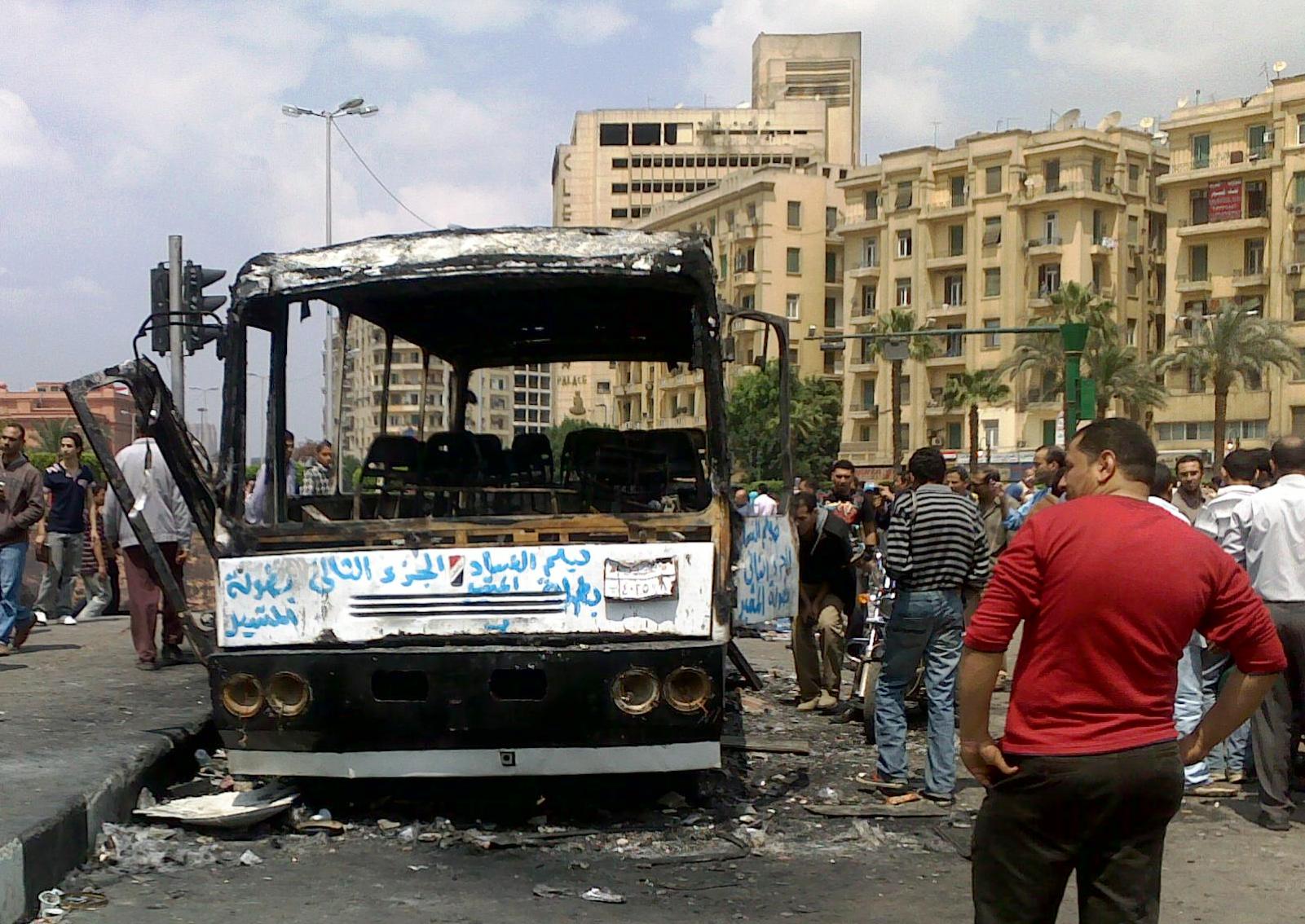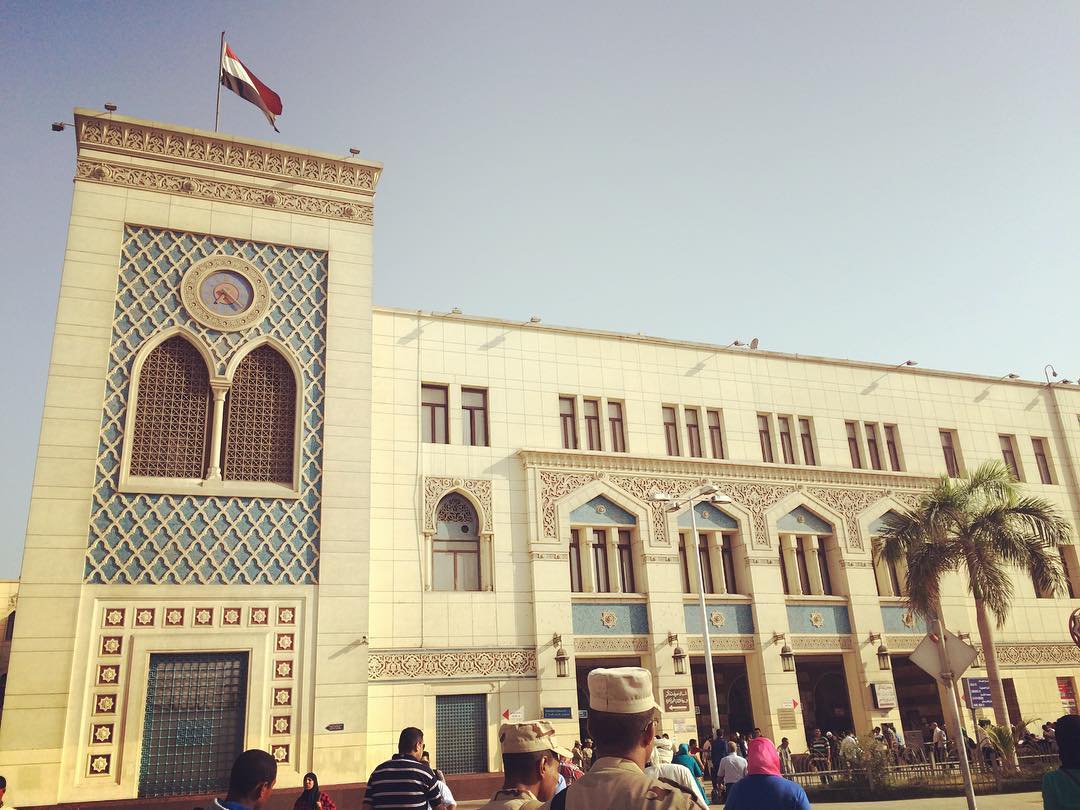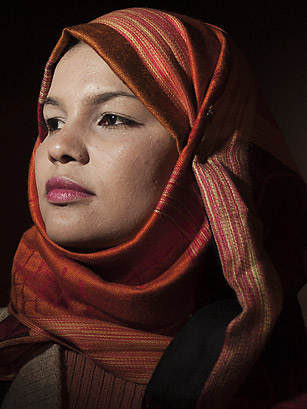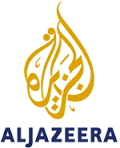Published in the New York Times on February 1, 2012 The economy has always been the Achilles’ heel of the Egyptian revolution. “Bread, freedom and social justice” has been one of the slogans of the revolution, but the revolutionaries failed to translate this slogan into specific proposals that could rejuvenate the economy and improve the lot of Egyptians. Indeed, since the revolution broke out on Jan. 25, 2011, millions have been suffering economically. As a result of the precarious security situation, foreign investors have been wary of coming to Egypt, local businesses have been reluctant to pump in more money,…
Leave a CommentCategory: Press articles
Published in Egypt Independent on January 25, 2012 Of the many slogans chanted by millions of protesters during the 25 January uprising, “The army. The people. One hand.” was the only one I couldn’t bring myself to say. This partly stems from my academic study of the history of this military and finding out how much Egyptians suffered when they were dragged to serve in Mehmed Ali’s army. But one does not need a PhD to find out that the army — any army — is a conservative institution by nature, and that a revolution — any revolution — poses…
Leave a CommentPublished in Egypt Independent on January 17, 2012 A few weeks ago, Egypt’s transport minister opened the new Cairo train station, also known as Ramses Station or Bab al-Hadid Station, following renovations that lasted for several years and which cost LE170 million. With much media fanfare the minister was quoted as saying he was proud of all the effort that went into the project and that Cairo can now boast of a train station that rivals the best in Europe. Upon visiting the station myself, however, I was shocked with what I saw there. The so-called renovations are nothing but…
Leave a CommentPublished in Egypt Independent on January 9, 2012 The human body has been front and center of this revolution since the early days of its outbreak last January. Even though the leading slogan of the revolution, Bread, Freedom and Human Dignity is abstract and does not make explicit reference to the human body, it is the 30 dark years of torture, hunger and ill-health inflicted on the bodies of Egyptian men and women under Mubarak’s rule that give this slogan meaning and resonance. In the last weeks of 2011, women’s bodies have emerged as a nexus for many of the principles…
Leave a CommentPublished in Egypt Independent on January 3, 2012 When I heard that the Institut d’Egypte was set on fire on Saturday, 17 December, I did not hesitate to go there and see the tragedy for myself. It was terrible indeed. There were flames of fire coming out from the corners of the collapsing building, the smell of smoke was hovering over the place, heavy and stifling, and demonstrators were shouting slogans against the regime that has not fallen, and against the police and the military council. My phone had not stopped ringing as many of my friends were calling to…
Leave a CommentAn Op-ed piece published in the New York Times on November 21, 2012 Ever since the coming to power of the Muslim Brotherhood in Egypt, Israeli officials have been pointing out the increased radicalization of the region. The harsh anti-Israeli language that Egyptian president, Mohamed Morsi, has been making in the wake of the recent crisis is seen in Israel as a clear sign that the post-Arab Spring Middle East is presenting them with a new set of challenges. This conflict will continue to grow more toxic until Morsi decides to focus less on security and more on justice. Rhetoric…
Leave a CommentPublished in Jazeera.com on November 20, 2011 Khaled Fahmy Fahmy is an associate professor of Middle Eastern and Islamic studies and history at the American University of Cairo. He is the author most recently of Mehmed Ali: From Ottoman Governor to Ruler of Egypt. [These] elections are important for a number of reasons: It is the first free elections in modern memory since 1952. For the overwhelming majority of Egyptians, this is the first time they will go and vote in a free election. This is the election for a parliament that will form a constitutional assembly that will then write…
Leave a CommentPublished as an op-ed for the CNN on February 9, 2011 Since the eruption of the Egyptian revolution last month, I have been on Tahrir Square with millions of other Egyptians calling for freedom and dignity. Over these weeks the square has been filled with people from all walks of life: young and old, Muslim and Copt, rural and urban, rich and poor, secularists and observant Muslims. Keeping a conspicuously low profile, the Muslim Brotherhood — the largest and most organized opposition movement in Egypt — has issued no formal slogans or distributed leaflets. Furthermore, the group has repeatedly denied…
Leave a Comment






